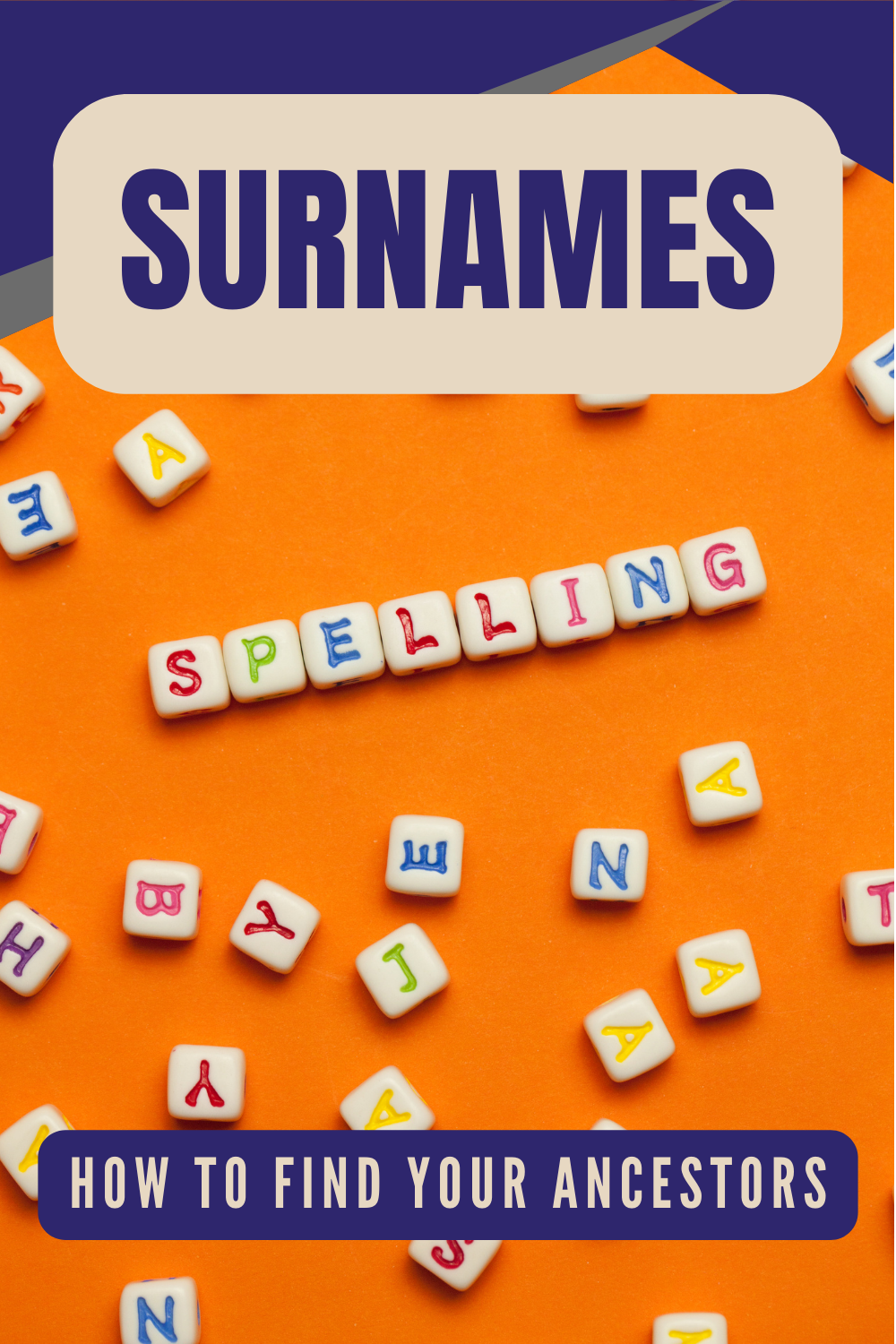Methodology: Create and Use Spelling Variations in Your Genealogy Searches
Knowing how to work with all the ways an ancestor's surname could be spelled, improves search results and reveals previously hidden genealogy records.

Genealogy websites offer helpful suggestions of similar surnames when we search. But did you know that not every possible spelling of that surname will appear?
Many times the records you want are there in that database on a genealogy website, it is just hidden because of spelling.
It is up to each individual researcher to both know why historically surnames varied in spelling, and how to create all the possible variations found in records.
Know the Reasons Why Surnames Differed in Spelling
Surnames are rarely spelled in a consistent way in historical records.
It is tempting to say that one spelling of a surname is correct, and all the other spellings are wrong. But by labeling names "right" and "wrong", we miss some important history and understanding about our ancestors. it is better to say that surnames were spelled "differently".
Knowing the reasons why names were spelled in different ways can help in the creation of a proof argument. Proof arguments are several sentences of reasoning as to why something is true. For example, in the case of names, a proof argument would demonstrate two individuals listed in two different records with differently spelled surnames are actually the same person.
Here's the list of possible reasons why your ancestors' surnames varied in spelling:
- Phonetic Spelling: Before the standardization of spelling, many records were written based on how the name sounded to the person recording it. Different record keepers might spell the same name differently based on their interpretation of its pronunciation.
- Literacy Levels: Historically, many individuals were illiterate and relied on clerks or other officials to record their information. These record keepers would spell names as they heard them, leading to inconsistencies.
- Language and Dialect Variations: The spelling of names often changed with the language or dialect of the record keeper. For example, a German clerk might spell a name differently than an English clerk.
- Cultural and Regional Differences: Names often have equivalents in different languages or are adapted to fit the phonetics or spelling conventions of another language or region.
- Transcription Errors: When historical records are transcribed for modern databases, errors can occur, especially if the handwriting is difficult to read or if the transcriber is unfamiliar with historical spelling variations.
- Simplification over Time: Some names were simplified or anglicized over time, especially when families immigrated to new countries where different languages were spoken.
- Legal or Personal Changes: Sometimes, name spellings were deliberately changed for legal reasons, personal preference, or to signify a break from the past.
As you read through the list, how many can you check off from your experience? Probably quite a few! You also probably noted that more than one reason can apply to each spelling difference.
The important part of the reasons for spelling variations is to clearly state for the readers of your family history, which of the causes listed above you are applying and why. State it in the footnote or endnote citations, or if it is a particularly unusual difference, within the text itself.
The second part of working with surnames and searching through records is to intentionally misspell them. By creating your own list of all the ways a surname could possibly be written, you'll be prepared for anything when you search.
